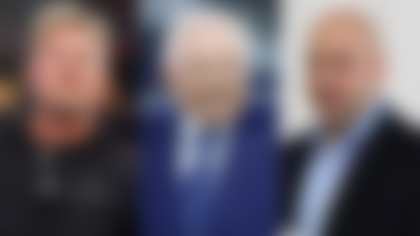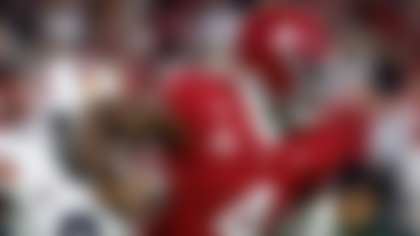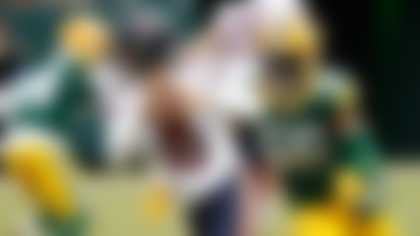BOCA RATON, Fla. -- The NFL gathers for its annual meeting (Sunday through Wednesday) under starkly different circumstances -- and with a notably different mood -- than last year's powwow. The furor over the league's handling of domestic violence cases has died down. The emotion surrounding deflated footballs has quieted, at least temporarily. And the biggest business decision the NFL has grappled with in recent years -- relocation to Los Angeles -- was settled in January.
To be sure, those attending the meeting -- owners, coaches and general managers -- will be asked to address the recent statement by a senior league official that there is "certainly" a link between football and CTE, the brain disease that has been found in dozens of deceased former players of all ages. And the ongoing conversations between the league and the players' association about potential changes to the role of the commissioner's office in player discipline for off-the-field transgressions are likely to be updated for owners.
But it is the rule changes that emerge from this meeting every year that provoke the most discussion among fans -- and that will have the most immediate impact on the game.
This year, the most important decision by the Competition Committee is the change they declined to make -- to the catch rule, a source of weekly conversation and consternation during the season. After watching hours of tape, the committee -- and a special committee of former coaches, executives and players -- came away believing that most of the most important people in the equation (officials, coaches and even many players) understand what constitutes a catch, and that the problem might simply be in communicating the rule more clearly to fans and to the game broadcasters who influence opinion.
"We went to Indianapolis and brought four current officials," said Competition Committee chairman Rich McKay, the Atlanta Falcons' chief executive. "It's incredible how clear they are and how supportive they are of the current rule. Could we create a more objective standard? They felt that would hinder them. There was a lot of input. There's over 18,000 passing plays in a year. That's 5,000 more than we had in 1990. We do end up with, say, a group of four plays, maybe six, out of all of those and we look at them frame by frame. But in reality, the on-field official is officiating a lot of plays and getting them right."
There are 19 rule proposals, though, that will be hashed over here: from those narrow in scope, like Washington's proposal to eliminate overtime during preseason games, to broader ideas that could shape the look of games, like eliminating all chop blocks. (That would be a change made after repeated attempts to modify the blocks, one designed to enhance the safety of defensive players. But it'd be a change that offensive linemen often claim would mean the end of the running game and screen plays.) The league is also expected to vote to make permanent the longer extra point, which was used in 2015 as a one-year experiment.
The most intriguing potential rule change is a new ejection rule, which would call for a player who gets two unsportsmanlike conduct penalties to be thrown out of the game. Commissioner Roger Goodell first brought up that idea publicly during his pre-Super Bowl press conference, catching some members of the Competition Committee by surprise. The rules proposal that owners will consider is a limited form of the suggestion by Goodell that players who receive multiple personal fouls should be ejected. The committee has struggled since then to determine which penalties would count toward an ejection. In a conference call on Thursday, the applicable penalties were finally laid out: throwing a punch or kicking an opponent, using abusive language with opponents, officials or teammates and taunting would all qualify as penalties that could contribute to ejection.
According to McKay, the NFL had 75 unsportsmanlike conduct penalties levied last season, a jump from 50 the year before. There were only two players last year, though, who incurred two of the designed three types of unsportsmanlike conduct penalties that would lead to an ejection. Officials already have the power to eject a player, even if he does not incur the two penalties. Neither Odell Beckham Jr. nor Josh Norman -- whose dustup during their regular-season game is believed to be the impetus for creating this rule -- would be ejected under its current proposal.
"We will emphasize, in the flagrant-fouls situation, the referee is empowered to eject a player for one foul," McKay said. "We will make that point to the officials. If they feel it's a flagrant act, they are empowered to eject a player from the game."
Follow Judy Battista on Twitter @judybattista.












